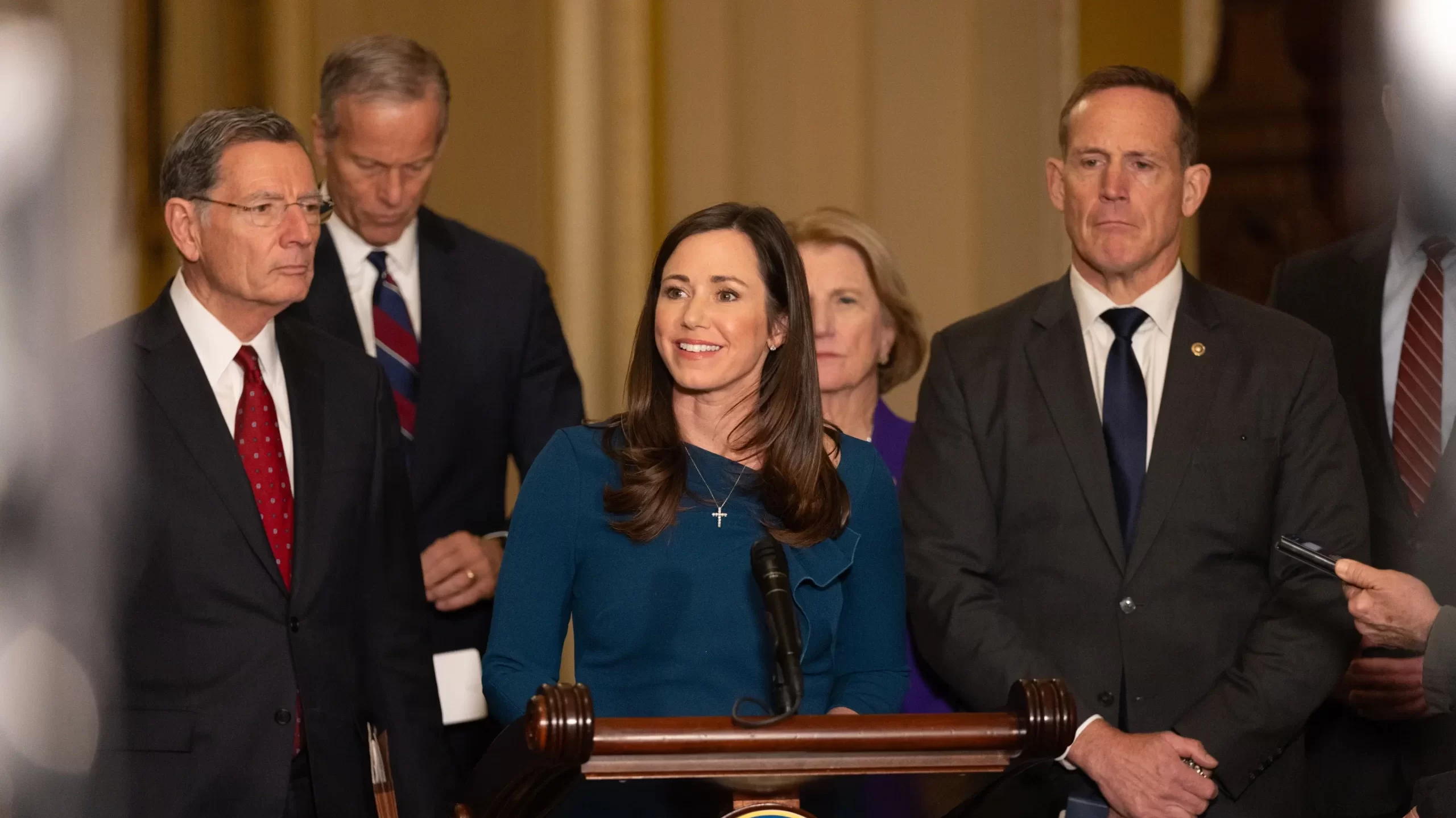Sen. Katie Britt, R-Alabama, recently joined Senate Banking Committee Chairman Tim Scott, R-South Carolina, and several other Senate Republicans in introducing the “Protect Our Bases Act.”
The legislation would “require the Committee on Foreign Investment in the United States [CFIUS] to annually review, update, and report on the facilities and property of the United States Government determined to be national security sensitive.”
The bill appears to be another in a line of measures brought forward by Republican lawmakers to limit foreign real instate investment in the United States, specifically from the Chinese government. Earlier this year, Britt joined fellow Sen. Tommy Tuberville, R-Alabama, in reintroducing the Foreign Adversary Risk Management Act which would permanently add the U.S. Secretary of Agriculture to the CFIUS with the intent to limit foreign investment in American farmland.
According to an official press release from Britt, this most recent piece of legislation was inspired by an incident in 2022, when a Chinese company with ties to the Chinese Communist Party attempted to purchase farmland near Grand Forks Air Force Base in North Dakota.
“CFIUS determined it could not evaluate the transaction for national security risks because the Department of Defense had not listed the base as a sensitive site for national security purposes. Although the City of Grand Forks ultimately blocked the transaction, the incident demonstrated a significant flaw in the review process of foreign land purchases,” reads the press release.
According to AP, numerous proposals to restrict foreign ownership of U.S. farmland have been brought forward in dozens of states in the wake of the Grand Forks Air Force Base dispute and the infamous moment when a suspected Chinese surveillance balloon invaded American airspace in 2023. More than 20 states have since implemented restrictions on foreign land purchases as Britt and her colleagues try to pass similar legislation at the national level.
“As the threat of our foreign adversaries grows, especially from the Chinese Communist Party, it’s paramount that we secure our intelligence,” Britt said in an official statement concerning the new bill. “Allowing CFIUS to review foreign land purchases near sensitive military and government sites is just common sense, and this legislation takes a crucial first step toward achieving that.”
Britt also previously signed on to the “Not One More Inch or Acre Act” in 2023, a bill that would have completely prohibited the sale of any U.S. land to Chinese nationals, companies or representatives of the Chinese government. However, that legislation failed to pass.







